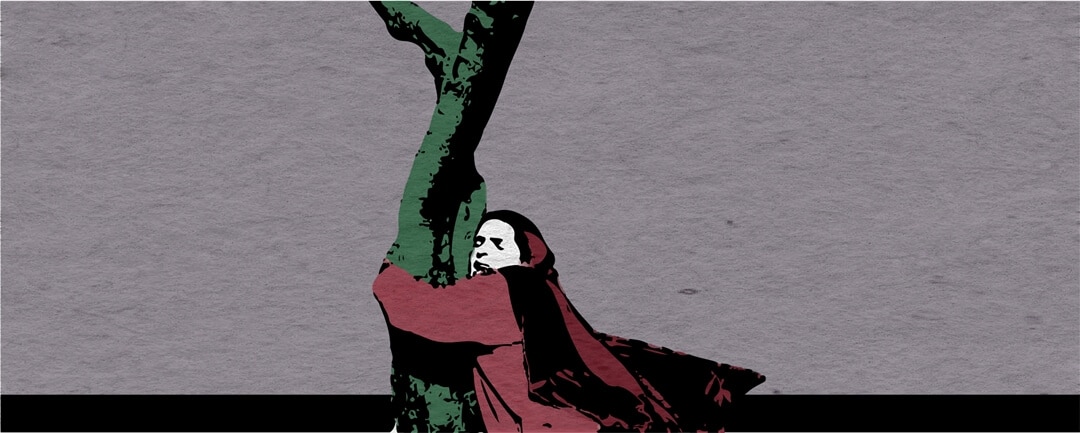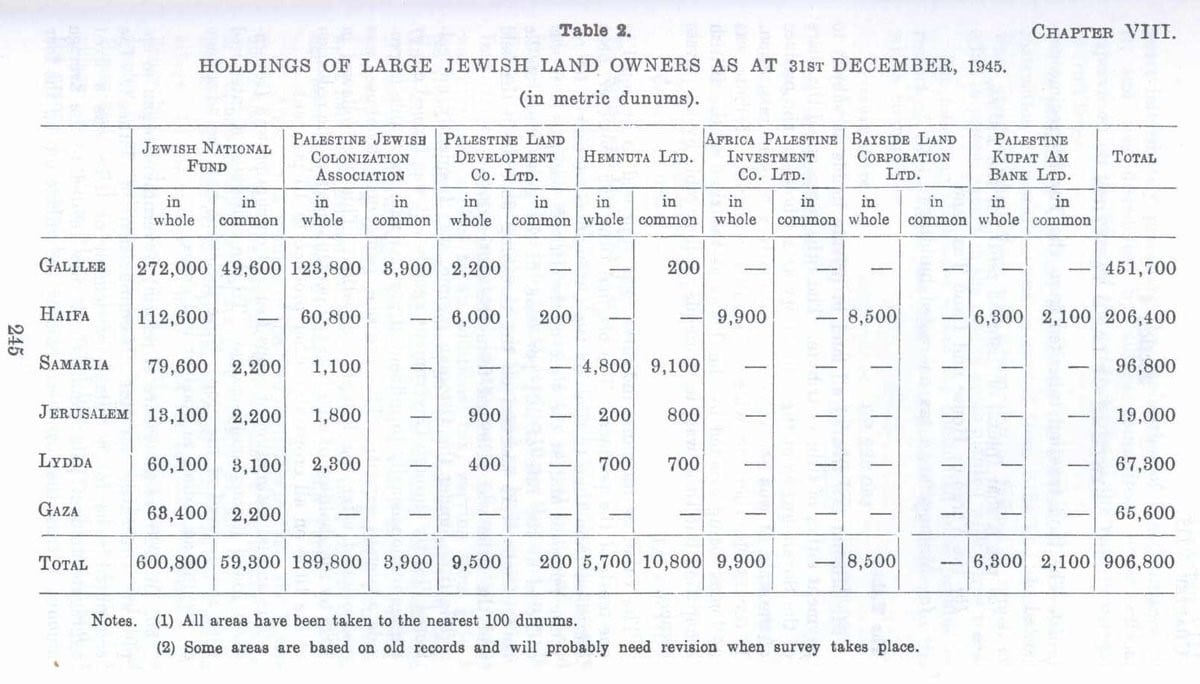

In yet another attempt to legitimize the Israeli take-over of Palestine, it was put forward by advocates of Israel that Palestinians had simply sold their land to the Zionist movement. Later, after witnessing how these lands were transformed into a paradise, Palestinians came to regret their decision and claimed that Israel stole their land. This conveniently ties together multiple Zionist myths and talking points into one neat package.
While this fairytale would certainly appeal to anyone trying to morally absolve themselves from the implications of their expropriation of large swathes of territory, unfortunately for them, detailed land purchase records exist. I’m sure you can already tell that these records dispel this ridiculous assertion.
The British were meticulous record keepers, and we have detailed numbers of the land purchased by the various Zionist organizations:

For reference, Mandatory Palestine as a whole had a territory of 26,625,600 dunams. The most generous estimations of Zionist land holdings were 2,000,000 dunums by 1948. For reference, a dunam is 1000 square meters. An acre is four dunams.
As you can see, at most the combined Zionist purchasing power could barely acquire 5-7% of the land, depending on source. Needless to say, huge swathes of it being strewn around the entire territory and being non-contiguous. Due to the ease with which this talking point can be debunked, it gradually fell out of favor -relatively speaking- among Israelis. However, it has since seen a resurgence among Arab Zionists desperate for normalization with Israel. In their eyes, this myth needs to be true so that they can blame the Palestinians for their own dispossession and legitimize their cynical political maneuvering.

This talking point is further undermined by Israel’s own legislation and policy following the Nakba [You can read more about this here]. The ethnic cleansing of Palestine would not stop after the war of 1948, Palestinians in the Naqab, as well as those close to the ceasefire lines would continue to face mass expulsions into the 1950s. In the same period, Israel issued the infamous Absentee’s Property Law. This law was instrumental in systematically seizing the property of all the refugees it had created, this included their homes, farms, land and even the contents of their bank accounts. Through this law, the state took control of everything remaining behind when the refugees were expelled, and if not contested or claimed, they would then become the property of the state, free to be utilized in any way it saw fit. Given the fact that any refugee attempting to return was shot, you can see how this law served merely as a fig leaf to legitimize what can only be described as naked theft. A step which would be unnecessary had the Zionists actually purchased the land on which Israel was erected, as some ridiculously claim.
This in conjunction with the Land Acquisitions Law allowed for the mass transfer of the entire Palestinian economy to the Israeli state. Practically overnight, the state gained control of over 739,750 agricultural acres, vast majority of which were of excellent quality, 73,000 houses, 7800 workshops and 6 million pounds. This dropped the cost of settling a Zionist family in Palestine from 8000$ to 1500$, effectively subsidizing the creation of the Israeli state and kickstarting its economy.
So, while we have already shown that the record shows no such large-scale purchase of the land as asserted, let us take a deeper look at these smaller purchases and discuss their implications.
First, it is important to note that the majority of the land purchased by Zionists were not sold by Palestinians, but rather by large absentee landlords, living mostly in Lebanon and Syria. Khalidi estimates that a little over the third (of the 5-7%) were sold by absentee landlords of Palestinian origin. And only 6% of the (5-7%) were sold by local landlords or peasants. These estimates are mostly corroborated by Walter Lehn and based on reports from the Jewish Agency that confirmed that the majority of land purchased was from large absentee landlords.
There is also evidence that suggests that these local sellers did not always wish to sell their land. For example, one mode of land extraction was when the Jewish National Fund gave loans to farmers with the precondition that their land would be used as collateral, and when the farmer ultimately defaulted on their payments, they would take possession of the land. In other cases, these peasants thought they were simply selling land to new neighbors. They did not know that they were selling their land for the erection of a new foreign colonial state that sought to dispossess them.
Furthermore, even if the percentage of the territories purchased by Zionist settlers was higher, this would not entitle them to sovereignty over it.
Ultimately, the question of Palestine is not about property rights. It is about settler colonialism and the attempted ethnocide of an entire people. Palestinians deserve to return to their homes and live in dignity, regardless how much private property they lost or didn’t lose.

- Bisharat, George E. “Land, Law, and Legitimacy in Israel and the Occupied Territories.” Am. UL Rev. 43, 1993: 467.
- Khalidi, Rashid. Palestinian identity: The construction of modern national consciousness. Columbia University Press, 2010.
- Shaw, John. A Survey of Palestine: Prepared in December, 1945 and January, 1946 for the Information of the Anglo-American Committee of Inquir, Institute for Palestine Studies, 1991.
- Khalidi, Rashid. The Hundred Years’ War on Palestine: A History of Settler Colonialism and Resistance, 1917–2017. Metropolitan Books, 2020.
- Khalidi, Walid (ed.), Sharif S. Elmusa, and Muhammad Ali Khalidi. All that remains: The Palestinian villages occupied and depopulated by Israel in 1948. Institute for Palestine Studies, 1992.

